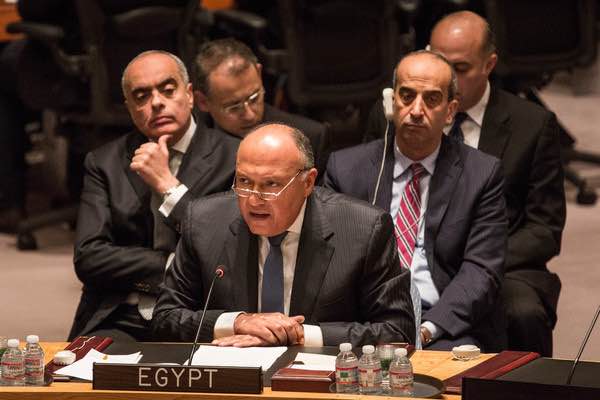CAIRO: As part of an ongoing investigation into the funding sources of local NGOs, the Ministry of Planning and International Cooperation revealed on Sunday that 12 Egyptian NGOs had received $5.8 million, while 14 US NGOs operating in Egypt had received $47.8 million illegally, according to reports.
In an official statement, Minister of International Cooperation Fayza Aboul Naga slammed the funding of NGOs that were not registered with the ministry or whose funding was not overseen by the Ministry of Foreign Affairs.
“It is not enough for the [US embassy] to notify the Egyptian government of the NGOs were given funds and this does not justify the continuation of their activities, which must cease immediately,” said Aboul Naga, adding that Egypt does not reject foreign funds to NGOs as long as they are processed within the agreed upon legal framework.
She also specified that these funds should only go towards development projects and that funding for political organizations, whether civil society or political parties, is completely illegal.
Commenting on the statement, chairman of the Egyptian Organization for Human Rights (EOHR) Hafez Abu Saeda questioned the exact meaning of a “registered NGO.”
“Registered, according to what? According to which law? As what kind of entity? Do they mean registered as a legal firm, or as an association or society, or as a corporation, or what exactly?” he said.
This statement is the latest in a series of official maneuverings against NGOs in Egypt, who have faced continued attack by the government on the pretext of receiving illegal funding, said Abu Saeda.
“The government not only places constraints, but imposes serious obstacles against all NGOs, registered or unregistered. There is a unified position against all NGOs,” said Bahey El-Din Hassan, director of the Cairo Institute for Human Rights Studies (CIHRS).
Hassan added that the issue was not about registration.
“All NGOs face the same difficulties even if they are registered. The issue is about dissatisfaction with NGOs’ activities, whether they are defending or upholding human rights, or raising awareness, or monitoring elections.”
Commenting on Aboul Naga, Gamal Eid, lawyer and executive director of the Arab Network for Human Rights Information, said that she was “the last person to speak about this.”
Abu Saeda agreed, pointing out that Aboul Naga is the only “pre-revolution” minister still in Cabinet, and is still voicing the same suspicions advocated by the former regime.
Hassan noted that the political atmosphere in Egypt is reminiscent of 2010 before parliamentary elections, when the media was gagged and NGOs were subjected to a smear campaign.
Meanwhile, “the government is asking [NGOs] to follow the principles of see no evil, hear no evil … as for the elections, we are not allowed to monitor but only observe,” he said.
To NGOs, Aboul Naga represents the face of the former regime which continues to threaten their activities.
But while they agreed with government stipulations on funding political movements or parties and secret funding and the insistence on openness and transparency, they demanded a better legal framework, more hospitable conditions, and more trust in civil society organizations.
“The purpose of this campaign is to shut down all determined NGOs that continue to oppose and advocate against military tribunals, virginity checks, and criticisms of the Supreme Council of the Armed Forces (SCAF),” said Eid.
According to Hassan, the investigations are a new trend, as “Mubarak never dared to investigate anyone.”
“Despite increased pressures, we are still in no better state than the victims we defend. We are used to this,” Hassan said.
